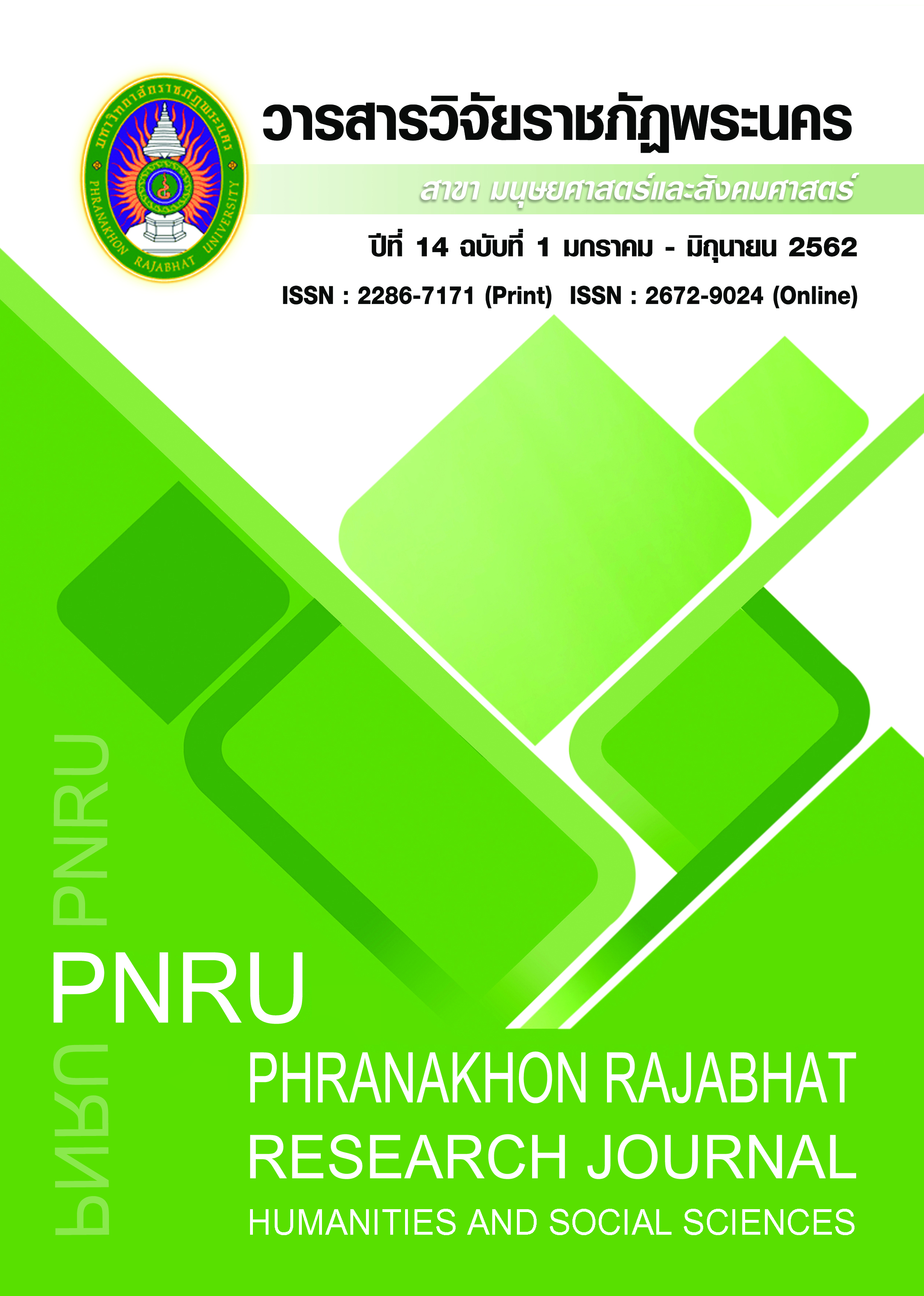การสร้างตัวตนความเป็นพลเมือง (ผู้รักบ้าน) ของนักเรียนในโรงเรียน
Main Article Content
บทคัดย่อ
บทความนี้ต้องการที่จะศึกษาการสร้างตัวตนความเป็นพลเมือง (ผู้รักบ้าน) ของนักเรียนในโรงเรียน ซึ่งเป็นตัวตนผู้รู้คิดในอันที่จะกำหนดหรือเข้าใจตนเองว่าสามารถเลือกเป็นผู้รักบ้านที่เป็นคุณสมบัติที่ดีของเยาวชน โดยการวิเคราะห์ปฏิบัติการของอำนาจในการสร้างตัวตนในโรงเรียนที่มีกระบวนการกิจกรรมการเรียนการสอนที่มีเป้าหมายเพื่อสอนให้เด็กนักเรียนเกิดความรักบ้าน โดยใช้แนวคิดคอนเฟสชั่นในการศึกษา ซึ่งเป็นแนวคิดในการมองปฏิบัติการของอำนาจที่มีเทคโนโลยีของอำนาจและเทคโนโลยีของตัวตน สร้างความรู้สึกหรือความเข้าใจตนเองของนักเรียนให้เป็นตัวตนที่รู้คิด รักและดูแลรักษาบ้านของตน ผู้วิจัยใช้วิธีการศึกษาแบบอัตชีวประวัติ เพื่อศึกษาชีวิตของนักเรียนที่สะท้อนประสบการณ์ในการสร้างตัวตน เก็บข้อมูลโดยการสัมภาษณ์เชิงลึก จากนักเรียน 4 คน ของโรงเรียนไทยรัฐวิทยา 83 (บ้านห้วยโจด) ซึ่งเป็นโรงเรียนที่มีกระบวนการกิจกรรมการเรียนการสอนเพื่อสร้างเยาวชนให้เป็นพลเมือง วิเคราะห์ข้อมูลด้วยการตีความแบบทฤษฎีฐานราก ผลการวิจัยพบว่า ปฏิบัติการคอนเฟสชั่นสร้างให้เด็กสามารถเรียนรู้และทำความสะอาดจากกิจกรรมกวาดบ้าน ถูบ้าน ซักผ้า ล้างจาน นั้นเป็นการกระทำที่สะท้อนให้เห็นผลคือ นักเรียนเป็นผู้รู้สึกหรือเข้าใจว่าตนเองสามารถเป็นคนดีด้วยการทำความสะอาดบ้านให้สวยงาม
Article Details
บทความที่ได้รับการตีพิมพ์เป็นลิขสิทธิ์ของมหาวิทยาลัยราชภัฏพระนคร
ข้อความที่ปรากฏในบทความแต่ละเรื่องในวารสารวิจัยราชภัฏพระนครเล่มนี้เป็นความคิดเห็นส่วนตัวของผู้เขียนแต่ละท่านไม่เกี่ยวข้องกับมหาวิทยาลัยราชภัฏพระนคร และคณาจารย์ท่านอื่นๆในมหาวิทยาลัยฯ แต่อย่างใด ความรับผิดชอบองค์ประกอบทั้งหมดของบทความแต่ละเรื่องเป็นของผู้เขียนแต่ละท่าน หากมีความผิดพลาดใดๆ ผู้เขียนแต่ละท่านจะรับผิดชอบบทความของตนเองแต่ผู้เดียว
เอกสารอ้างอิง
Fejes, A. & Nicoll, K. (2015). Foucault and a Politics of Confession in Education. New York : Routledge.
Fejes, A. & Magnus, D. (2013). The Confessing Society. NY: Routledge.
Fejes, A. (2011). confession, in-service training and reflective practices. British Educational Research Journal. 37(5), 797-812.
Foucault, M. (2003). Michel Foucault “Society Must Be Defended” Lectures at the college de France 1975-1976. NY: Picador.
Havanond, N. (2009). how to study stories: the turning point of research in the field of social science. Journal of the Mekong River Basin. 5(2), 1-22. (in Thai)
Janthapakoon, N. (2004). Nude: the reflection of power and violence on women bodies. Ed.D. Program in Development Education. Graduate School, Srinakharinwirot University. (in Thai)
Marshall, J.D. (1996). Michel Foucault : personal autonomy and education. Netherlands : Kluwer Academic Publishers.
Rabinow, P. (1997). Ethics : subjectivity and truth. NY: The New Press.
Sankatiprapa, K. (2007). Kathoey sexual harassment: its significance in heteorsexual discourse. Ed.D. Program in Development Education. Graduate School, Srinakharinwirot University. (in Thai)
Smart, B. (2012). Michel Foucault. Translated by Chiangtong, J. & Sooksaranjit, S. Bangkok : Princess Maha Chakri Sirindhorn Anthropology Centre. (in Thai)
Thairath Foundation. (2016). strategic plan for Thairath Vittaya school : Issue 4, 2016-2019. (in Thai)
Tanabe, C. (2008). Community and governmentality : the hiv-infected group in northern Thailand. Bangkok : Princess Maha Chakri Sirindhorn Anthropology Centre. (in Thai)


